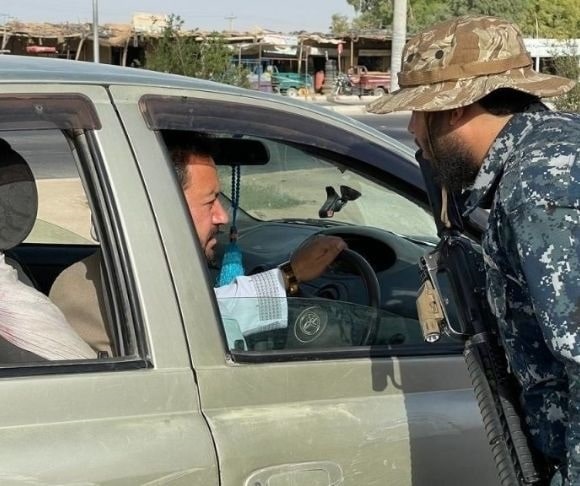Conquering and holding are a lot less complicated than governing. The media has been full of the Biden administration blunders that ensured the U.S. military would have an ignominious retreat leaving Kabul. We know that the decision by Commander General Frank McKenzie of Central Command to decline American close air support accelerated the Taliban’s rout of the Afghan security forces. In a recent analysis of the aftermath of the Taliban takeover of Afghanistan, Arwin Rahi, writing for The National Interest, takes a close look at what may be a fleeting victory. Rahi views the winning insurgent forces through a lens of what they did and are doing wrong that could cut the Taliban’s endzone victory dance short.
 According to CNN, during the Trump administration negotiations with the Taliban in August of 2020 that led to direct peace talks, there was an agreement by the Afghan government at that time to release 400 Taliban prisoners. However, 400 turned into 5,000 when Afghanistan’s “grand assembly of elders, the consultative Loya Jirga, passed a resolution Sunday [August 9, 2020] calling for the release of the last batch of some 5,000 Taliban prisoners, whom the Taliban demanded be freed as a condition for joining peace negotiations.”
According to CNN, during the Trump administration negotiations with the Taliban in August of 2020 that led to direct peace talks, there was an agreement by the Afghan government at that time to release 400 Taliban prisoners. However, 400 turned into 5,000 when Afghanistan’s “grand assembly of elders, the consultative Loya Jirga, passed a resolution Sunday [August 9, 2020] calling for the release of the last batch of some 5,000 Taliban prisoners, whom the Taliban demanded be freed as a condition for joining peace negotiations.”
The release of the 5,000 prisoners has led to relentless criticism of the Trump administration for not keeping their eyes on their negotiating position and the possible consequences. In this case, all stripes of vicious criminals, terrorists, and Taliban loyalists were among those released. However, as Rahi reported, the release of the prisoners was also a severe blunder for the Taliban. Rahi said:
“The Taliban’s first blunder was releasing all prisoners after capturing government-run prisons and detention centers across Afghanistan. Had the Taliban only released their own members, it would have been justifiable in the context of the conflict. However, the Taliban’s release of thousands of professional criminals and terrorists, such as the leader of the Islamic State Khorasan Province (ISKP) Omar Farooqi and other ISKP members, cannot be justified on any grounds. Now that a large number of hardened terrorists who constitute a major security threat are on the loose, it is doubtful whether the Taliban have the capacity, or the will, to re-arrest them.”
It also seems as though the Taliban are not the astute Strategists and tacticians that the rapid victory achieved fighting its way across the whole of Afghanistan might suggest. Another miscalculation the Taliban leadership made, according to Rahi, was to carry the battle to Panjshir province “instead of trying to reach a negotiated settlement with Panjshiris.” In Liberty Nation’s analysis of the Taliban’s boast of defeating the mostly Tajik population living in the Panjshir valley, there was nothing conclusive in the Islamic Emirate of Afghanistan forces’ claim. Rahi explained:
“Many Afghans do not understand why the Taliban could negotiate for two long years with the Americans but not for two weeks with Panjshiris. Although the Taliban have declared victory in Panjshir, their celebration is premature. The Ahmad Massoud-led National Resistance Front (NRF), which is native to Panjshir and knows the terrain well, still holds the mountains. Dislodging the NRF is a monumental task in which the Taliban’s success is not guaranteed. If the NRF continues to hold its own against the Taliban, resistance against the Taliban will likely spread to other parts of Afghanistan.”
Other missteps and miscalculations have left the Taliban in a position to validate all the criticisms and international jabs. The Taliban establishing a very ethnocentric Pashtun government with no women, which sent a clear message that the “new” Taliban was the “old” Taliban. Though Pashtuns makeup only “40 percent to 45 percent of Afghanistan’s population,” they now “comprised more than 90 percent of cabinet appointments.” The U.N. was surprised. U.N. High Commissioner for Human Rights Michelle Bachelet said: “In contradiction to assurances that the Taliban would uphold women’s rights, over the past three weeks, women have instead been progressively excluded from the public sphere.”
The Emirate is having significant financial problems as well. As Reuters reported, “While many people welcomed the end to 20 years of fighting between the Taliban and ousted Afghan forces supported by foreign troops, the economic crisis is causing the new government increasing concern.”
In addition – and perhaps this is the aspect of the new Taliban government that has the most potential to be the coups de gras – is the re-emergence of old internecine rivalries. The BBC reported that following the takeover of Kabul, “supporters of two rival factions reportedly brawled at the presidential palace in the capital Kabul. The argument appeared to center on who did the most to secure victory over the US, and how power was divided up in the new cabinet.”
 Governing a country is complex work that generally requires some professional experience. The way the new Afghan Emirate is emerging, one cannot help but recall the last scenes of the movie Lawrence of Arabia. Following the victory over the Ottoman Empire, all the victorious Arabs are gathered at the “Table of Damascus,” arguing over who does what.
Governing a country is complex work that generally requires some professional experience. The way the new Afghan Emirate is emerging, one cannot help but recall the last scenes of the movie Lawrence of Arabia. Following the victory over the Ottoman Empire, all the victorious Arabs are gathered at the “Table of Damascus,” arguing over who does what.
When Damascus was captured, each of the tribes took a civil works responsibility. It seems that the telephones weren’t working, the responsibility of Auda Abu Tayi, played by Anthony Quinn, who blames Omar Sharif as Sherif Ali for not providing electricity. Of course, Sherif Ali takes this as a personal affront and leaps to his feet, stopped only by Peter O’Toole playing Lawrence, who warns, “if you answer, there will be bloodshed.” None of the leaders want responsibility, nor do they understand the modern machinery that makes a city work. Ultimately, in frustration, they all go back to their respective tribal and family regions.
Whether this is how the Islamic Emirate of Afghanistan will sort out, in the end, is anybody’s guess. The last time the Taliban was in charge, regional warlords governed in the rural areas, paying little attention to Kabul leadership. With the Panjshir as a model of resistance, should strong warlords emerge again, “there will be bloodshed.”
The views expressed are those of the author and not of any other affiliation.
~ Read more from Dave Patterson.




